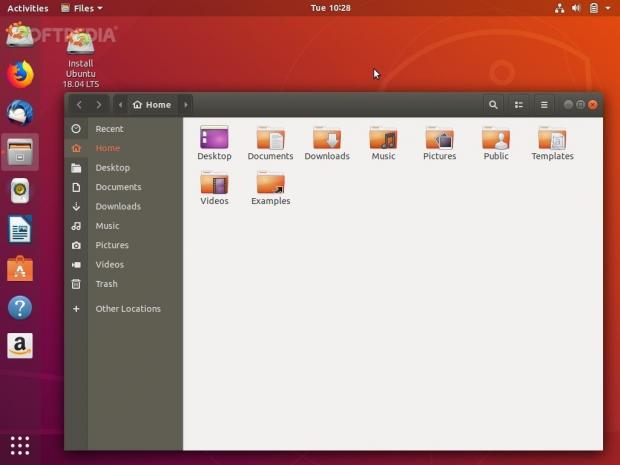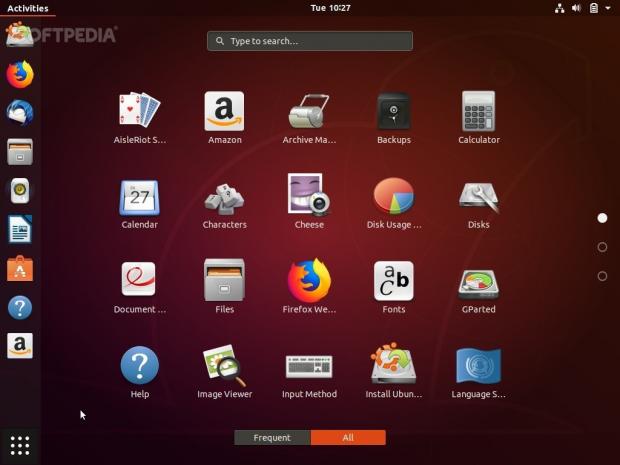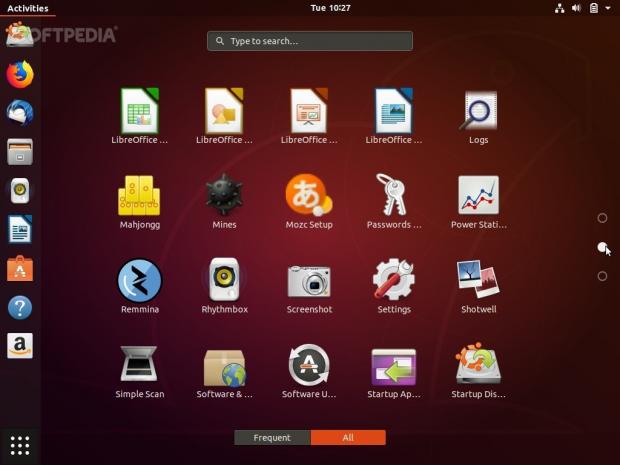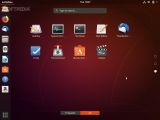Canonical officially announced today its Ubuntu 18.04 LTS (Bionic Beaver) operating system for computers, IoT, and cloud environments.
More than six months in the works, Ubuntu 18.04 LTS is dubbed "Bionic Beaver" and it's Canonical's seventh LTS (Long Term Support) release. It will be supported with security and software updates for five years, until April 2023, during which it will receive no less than five maintenance updates, each one bringing updated kernel and graphics stacks from newer Ubuntu releases.
As expected, Ubuntu 18.04 LTS brings numerous new features and changes, starting with using the X.Org Server as default display server again instead of Wayland, which was used in Ubuntu 17.10. While Canonical plans to re-enable Wayland as default display server in Ubuntu 20.04 LTS, for now will be provided as a Technical Preview, available from the login screen.
Another cool new feature of Ubuntu 18.04 LTS is a "Minimal Install" option in the graphical installer that lets users install the operating system with only the Mozilla Firefox web browser and a handful of standard utilities. Talking about the graphical installer, it's got a revamp in this release, so you'll see a bunch of different options added and other removed.
Developed in collaboration with Microsoft, new Hyper-V optimized images are available for Ubuntu 18.04 LTS, making it the fastest Ubuntu Desktop on your Windows desktop. For cloud environments, the Ubuntu 18.04 LTS cloud images ship with hardware acceleration integration for Nvidia GPUs.
“Multi-cloud operations are the new normal” said Mark Shuttleworth, CEO of Canonical and founder of Ubuntu. “Boot-time and performance-optimised images of Ubuntu 18.04 LTS on every major public cloud make it the fastest and most efficient OS for cloud computing, especially for storage and compute intensive tasks like machine learning.”
Shipping with GNOME 3.28 as default desktop environment
Like Ubuntu 17.10, the Bionic Beaver ships with the latest GNOME desktop environment by default. All the apps provided by GNOME have been updated to version 3.28 except the Nautilus file manager, which stays at version 3.26 due to the fact that the current version no longer handles the desktop. However, Nautilus received a proper, darkish revamp in Ubuntu 18.04 LTS.
GNOME 3.28 alone brings a lot of changes that you should be aware of if you upgrade from Ubuntu 17.10, which uses the GNOME 3.26 desktop environment. One feature that needs to be highlighted here is that the GNOME Shell interface now supports Thunderbolt 3 connections. Also, GNOME 3.28's brand new GNOME To Do app has also been included by default in Ubuntu 18.04 LTS.
As far as the app selection goes, we can mention that GNOME Calendar now supports weather forecasts, the GNOME Characters app is included as a replacement for the older Character Map utility, and GNOME Boxes now uses spice-vdagent to offer better performance for Spice clients. LibreOffice 6.0 is default office suite, Mozilla Firefox 59.0.2 default web browser, and OpenJDK 10 is the default JRE/JDK.
Multiple apps are provided as Snaps
As Canonical advances its Snappy technologies, which provide better isolation and security, as well as continuous upgrade support throughout the entire LTS lifecycle, it's no wonder that Ubuntu 18.04 LTS comes pre-installed with several apps in the Snap universal package format by default.
These include GNOME Calculator, GNOME Characters, GNOME Logs, and GNOME System Monitor. To make it easier for users to install Snaps, the Ubuntu Software app now lets you easily switch between different Snap Store channels. More than 3,000 Snaps are available for installation from the Snap Store, including popular apps likes Firefox, Spotify, Skype, and Slack.
Other noteworthy changes in Ubuntu 18.04 LTS include support for color emoji in most apps, a two-finger right-click method is now available for touchpads without physical buttons (this setting can be changed with the GNOME Tweaks utility), and a new default driver for mice and touchpads was implemented, namely libinput.
You'll still be able to switch back to the Synaptics driver via the Settings app if you think libinput isn't for you, but Canonical said it will be removed in a future Ubuntu release. Last but not least, Ubuntu 18.04 LTS automatically suspends laptops running on battery power after 20 minutes of inactivity.
Under the hood of Ubuntu 18.04 LTS
Under the hood, Ubuntu 18.04 LTS is powered by the Linux 4.15 kernel series, which recently reached end of life. However, we believe Canonical will continue to support it until the first point release, Ubuntu 18.04.1 LTS, which should arrive later this year with newer kernel and graphics stacks.
"In Ubuntu 18.04 LTS, gcc is now set to default to compile applications as position independent executables (PIE) as well as with immediate binding, to make more effective use of Address Space Layout Randomization (ASLR). All packages in main have been rebuilt to take advantage of this, with a few exceptions," said Canonical in the release notes.
Mitigations for the Meltdown and Spectre security vulnerabilities are in place too. These are some of the major new features since Ubuntu 17.10 (Artful Aardvark), but you should also check out our "What's New in Ubuntu 18.04 LTS Since Ubuntu 16.04 LTS" article if you're upgrading from an older version. Ubuntu 18.04 LTS is now available to download, but you can also upgrade from a previous version.
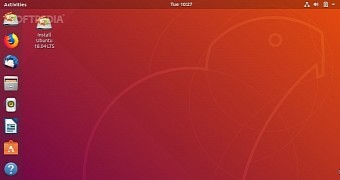
 14 DAY TRIAL //
14 DAY TRIAL // 